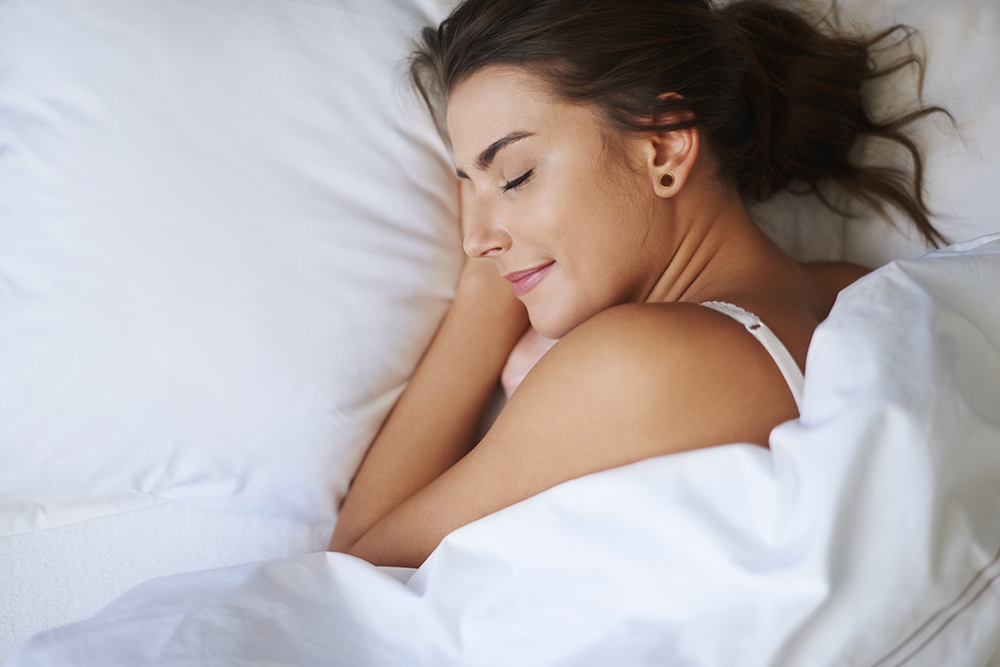How to Get a Good Nights Sleep for Optimal Heart Health
 Bryce Wylde, leading alternative health expert, has provided a wealth of information regarding the impact of sleep on health. If you’ve missed a part of this sleep series…
Bryce Wylde, leading alternative health expert, has provided a wealth of information regarding the impact of sleep on health. If you’ve missed a part of this sleep series…
Part 1: Sleep Deprivation and Heart Disease
Part 2: The Effects of Snoring Go Beyond Heart Disease
Now, let’s summarize the health risks of sleep deprivation and move on to steps you can take to reduce risks by ensuring a quality nights sleep.
Sleep deprivation and health risks
Chronic sleep deprivation due to causes such as snoring and sleep apnea increases your chances of diabetes, depression, cardiovascular disease, hypertension, weight gain and even a fatal car accident.
Poor sleep hygiene is likely one of the most common problems encountered in our society leading to sleep deprivation. As a society, we generally stay up too late and get up too early. We have over exposure to artificial light which impedes the hormones that regulate sleep. We interrupt our sleep with drugs and chemicals. We work too many hours sustained on too much caffeine. Not to mention, we fill our heads with negative news headlines just before we hit the hay.
How to get a good nights sleep
Here is how you can successfully achieve optimal sleep hygiene:
Bryce’s first tip! Don’t push snooze in the morning! Research shows that snoozing doesn’t benefit you. Getting too little – and even too much – seems to negatively affect memory according to the Harvard-based Nurses’ Health Study whose findings were published in the Journal of the American Geriatrics Society. So, try and sleep like Goldilocks and aim for just the right amount of sleep!
Use comfortable bedding that helps you regulate temperature. Research shows about 60-67 degrees Fahrenheit is optimal.
Set your alarm twice in 24 hours. The first alarm should go off at your bed time! This will alert you to the time you need to hit the sack to achieve the necessary 7-8 hours.
Don’t take your worries to bed. Create a written list and leave it in the kitchen. Practice relaxation techniques before bed such as deep breathing and visualization. Tell yourself the list is done and you will get to it in the morning.
Drown distracting noise, and eliminate as much light as possible. Consider an eye mask. But, if you or your partner snores or has congestion, my favorite product on the market right now is appropriately and ingeniously called “Mute” by Rhinomed. Both snorers and their partners report a better night’s sleep when Mute is used, waking more refreshed. In fact, in a user trial, 75%* of partners reported snoring was either less or much less when the snorer used Mute. And let’s not forget how this issue isn’t just about the snorer but also about the partner who loses sleep while enduring the agonizing noise of the snorer! The reason I love Mute so much is that it is individually adjustable on each nostril so it fits all nose types. This enables the device to comfortably adjust to asymmetrical noses or noses with deviated septums. I have a nasal septal defect (one nostril is distinctly smaller than the other which causes me to snore). When you first put in Mute, you get an instant rush of air; you can really feel the difference. It is super easy to find by the way – available at Walgreens, Bartell Drug, CVS, Duane Reade and even online at mutesnoring.com.
Avoid napping more than 15 minutes. Do what truckers do and set your alarm for 10 to 15 minutes! Longer than that and you run the risk of entering a sleep cycle (above) thereby robbing one of the sleep cycles from happening at night. Don’t forget, you can’t “catch up” on your sleep.
Avoid alcohol and caffeine 4-6 hours before bedtime. Caffeine avoidance is obvious. But where alcohol may have immediate sleep-inducing effects, a few hours later as the alcohol levels fall and interrupt your sleep cycle by interfering with your sleep architecture.
Exercise intensely and regularly, but not right before bed! Aim for the morning time to exercise. If you exercise too soon before bed you run the risk of increasing body temperature which makes it more difficult to fall asleep.
Warm milk and foods high in the amino acid tryptophan, such as bananas and pumpkin seeds, may help you to sleep. A formula commercially available and researched for its safety and efficacy in keeping you asleep is called “Zen Bev” a formula created using pumpkin seeds yielding a high amount of naturally occurring tryptophan.
Watching TV or engaging in social media in bed is also a bad idea. Besides some of the controversial evidence about its light emission, these are very engaging mediums that tend to keep you up by keeping your mind overly active.
Your goal is not to sleep like a baby! They do tend to sleep long hours (more than you will need) but are also restless and wake up multiple times through the night. You want to sleep like a log: Quiet and waking up in nearly the same position you fell asleep in. Use Bryce Wylde’s tips above and you’ll get there!
Drs. Chris and Kara Mohr developed the 21 Days to Better Sleep program. I highly recommend it. Their videos with instructions are engaging and the content can be put to good use so you achieve quality sleep each night. Learn more and purchase the program here.
All the best,
Lisa Nelson RD
*results may vary (n=236, 2014); Based on 2014 Mute user study with 118 couples.



